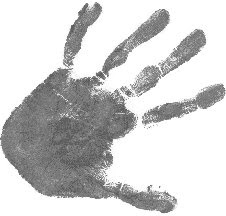Greenpeace: Brush your teeth, get cancer and die.
That's the story proffered in the Brit's Evening Standard. The theory is that triclosan reacts with water to produce chloroform gas. Chloroform gas is, apparently, a known carcinogen.
Here's the first indication of a problem with the reporting: "If inhaled in large enough quantities, chloroform can cause depression, liver problems and, in some cases, cancer." Yeah, so can oxygen - in large enough quantities. Ever see rust? That's caused by oxygen. Oh my. Imagine what it's doing to your lungs!!!
Here's the only other indication of a problem we need: "[The manufacturer of the products] Marks & Spencer confirmed today it was removing products containing triclosan from all its stores and has been working with Greenpeace to develop alternative products." Ahhh, that leading cancer research institute and toothpaste expert organization Greenpeace. I feel so much safer knowing they are on the job. And I was just about to commit Harry Carey (sing baseball songs while brushing) over the prospect of losing my teeth whilst I fretted about inhaling chloroform gas. Whew, that was a close one!! I always get the order mixed up and say "get me some Crack Jack and peanuts" then I just stop singing. Could you imagine doing that with a mouthful of toothpaste and desparately trying to constantly exhale? I would probably choke and die. Greenpeace, thank you!!!
I wish that were all of the bad news, but it get's worse. Artfully hidden among pictures of skin cancer, Heart Spring shares this tidbit: "The U.S. EPA recently stated that 'Due to chlorine and showering, virtually every home in America has a detectable level of chloroform gas in the air.' When chlorine vaporizes in steam, and combines with other organic compounds in the air, it converts to chloroform. Chloroform is a strong respiratory irritant and causes fatigue." So, if I shower and inhale chloroform gas I may get tired and want to go back to bed.
Just to be safe, until these issues are resolved, I am not going to brush my teeth or shower. But wait - that's silly. Although if I stopped writing now, my son would print this out and put it on my bedroom door with the note, "Please read. I agree. Kindly reinstate allowance until further studies are completed, peer reviewed, and published."
Let's learn more about chloroform:
"Chloroform is a clear colorless volatile liquid with an ethereal scent that is nonflammable and does not form explosive mixtures at atmospheric temperatures and pressures. It is miscible with most organic solvents, and is slightly soluble in water. Chloroform evaporates quickly and in its concentrated gaseous form, it will tend to settle to the ground before dispersing." So it won't explode in my mouth and I can reduce my risk if I brush my teeth standing up. That's a good tip.
"Pyrolysis of chloroform vapor occurs at temperatures above 450 oC, producing tetrachloroethylene, hydrogen chloride, and minor amounts of other chlorocarbons." So if you put a lit match to it, it produces something like ethylene. Don't they use that to power cars in California? This may be a whole new industry. Brush your teeth, spit into the gas tank, and drive to work. Think of all those healthy gums as people run out of gas and begin to brush their teeth. It may increase roadside deaths, but it would be a boon to forensic dentistry. Maybe the drool cup industry would be revitalize, too (although I understand that the fad of tongue piercings has had a positive effect).
OK. Enough silly stuff. Here's the meat: "Cancer: No information is available regarding cancer in humans or animals after inhalation exposure to chloroform. Chloroform has been shown to be carcinogenic in animals after oral exposures resulting in kidney and liver tumors. The U.S. EPA has classified chloroform in Group B2: Probable human carcinogen, with a potency value of 2.3 x 10-5 (microgram per cubic meter)-1. The U.S. EPA estimates that if an individual were to breathe air containing chloroform at 0.04 µg/m3, over a lifetime, that person would theoretically have no more than a 1 in 1 million increased chance of developing cancer (U.S. EPA, 1994a). The International Agency for Research on Cancer has classified chloroform in Group 2B: Possible carcinogen based on inadequate evidence in humans and sufficient evidence in animals (IARC, 1987a)."
Inadequate evidence. One in one million - in theory.
I have a higher probability of dying in a car wreck (1.62 per million) - and that is actual deaths based upon data.
In fact, when you consider that the overall death rate is 49.16 per million, and the cancer survival rate is ever-increasing (over 50% almost ten years ago!), I think that a one in a million risk sounds pretty good.
I'm gonna go brush my teeth and shower - a long hot shower. Maybe I'll floss, too.














No comments:
Post a Comment